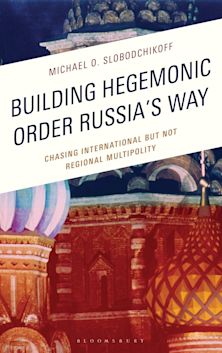East–South Women Internationalism at the Cold War Periphery
Coming Together in Tashkent, Havana, and Beyond
- Open Access
East–South Women Internationalism at the Cold War Periphery
Coming Together in Tashkent, Havana, and Beyond
- Open Access
This product is usually dispatched within 1 week
- Delivery and returns info
-
Free CA delivery on orders $40 or over
Description
This open access book by Yulia Gradskova examines women's internationalism and gatherings in the places understood as Cold War peripheries.
East–South Women Internationalism at the Cold War Periphery: Coming Together in Tashkent, Havana, and Beyond examines women's gatherings, internationalism, political travel, and networks through questioning established geopolitical categories. While female “political tourists” coming to cities like Tashkent and Havana cannot be seen as free from neither the superpowers' open and hidden confrontational agendas nor from Cold War surveillance and pressures, Gradskova demonstrates that they significantly contributed to the advancement of transnational women's rights. Simultaneously, East-South Women Internationalism at the Cold War Periphery contributes to the growing field of decolonial criticism regarding the “second world” emancipation project by detailing how its vision of progress hindered many other voices and visions of the future from being heard. Gradskova's attention to the mundane problems and pleasures of traveling, coming together, and writing letters allows for distinguishing implicit details of curiosity, emotional attachment as well as (self) censorship and hierarchies; in turn, helping to reconstruct parts of women's robust and complex participation in the building of the transnational connectivity trespassing the Cold War division lines.
The ebook editions of this book are available open access under a CC BY-NC-ND 4.0 license on bloomsburycollections.com. Open access was funded by Riksbankens Jubileumsfond.
Table of Contents
Chapter 1: Coming Together for a “Better Future?” Contexts, Places, and Memories
Chapter 2: Women Going Places: Between Political Duties and the Tourist Gaze
Chapter 3: South-East Women's Internationalism from Tashkent: Building a (Post)Colonial Sisterhood?
Chapter 4: The Federation of Cuban Women (FMC) and Internationalism from Havana
Chapter 5: Internationalism, “Care for Mothers,” and Reproductive Rights
Chapter 6: East-South Women's Networks and Education for Women: Visions, Discussions, and Practices
Chapter 7: A School that “Opens up the World?” Latin American Women Taking a Course in Havana
Final Reflections
Appendix: Archival Sources, Periodicals, and Oral Sources
Bibliography
Index
Product details

| Published | Sep 18 2025 |
|---|---|
| Format | Hardback |
| Edition | 1st |
| Extent | 312 |
| ISBN | 9781666943436 |
| Imprint | Bloomsbury Academic |
| Dimensions | 229 x 152 mm |
| Publisher | Bloomsbury Publishing |
Reviews

OPEN ACCESS
Bloomsbury Open Access
Read and download this book free of charge from Bloomsbury Collections.


































